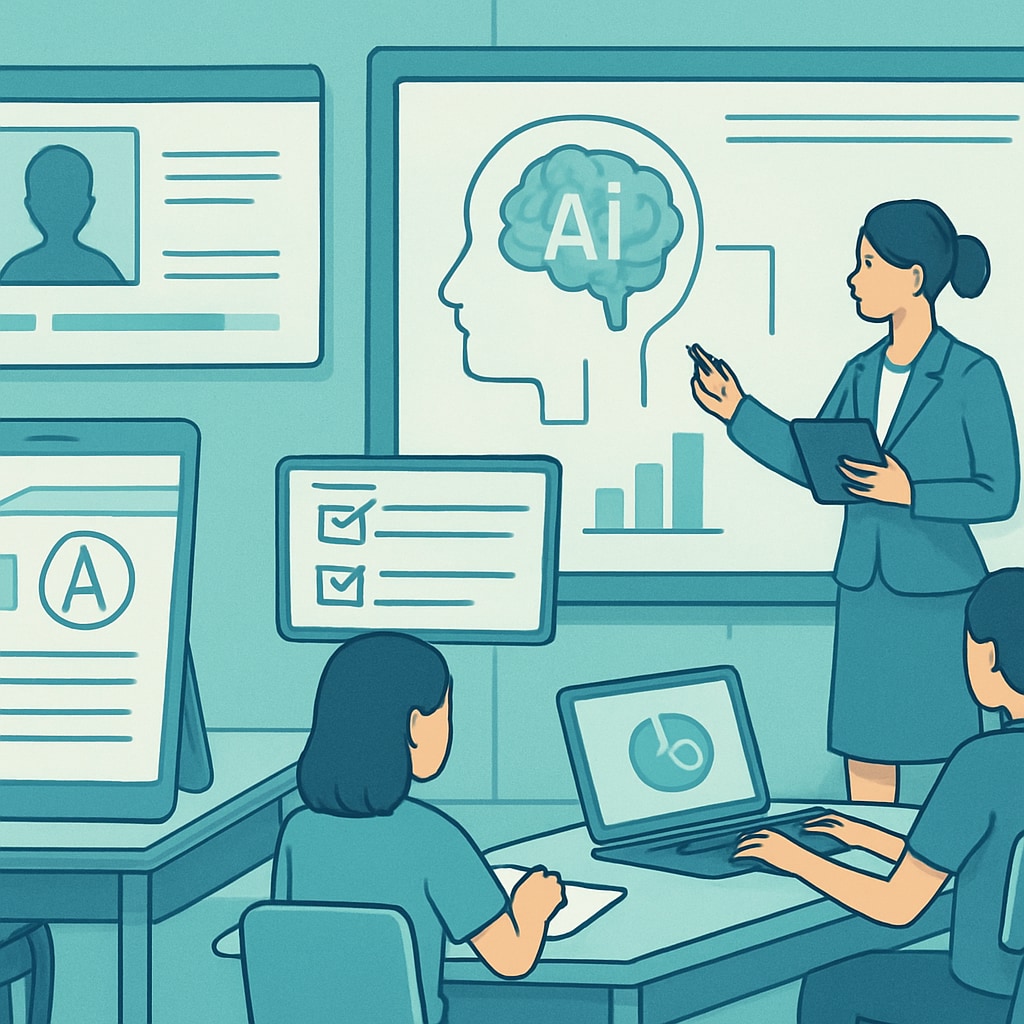Artificial intelligence (AI) is rapidly transforming industries worldwide, and its influence on school education is becoming increasingly apparent. As AI technologies evolve, they promise to reshape the learning experience for students, redefine the role of teachers, and revolutionize assessment methods. This article delves into the impact of artificial intelligence on school education over the next decade, highlighting both the opportunities and challenges that lie ahead.
Personalized Learning: A New Frontier
One of AI’s most profound contributions to school education is the potential for personalized learning. Traditional classrooms often struggle to cater to the individual needs of students due to their diverse abilities, interests, and learning paces. AI-powered tools, such as adaptive learning platforms, can analyze student data and create tailored educational experiences. For example, algorithms can identify gaps in understanding and recommend targeted exercises or resources to address these weaknesses.
In addition, AI can provide real-time feedback to students, enabling them to track their progress and adjust their learning strategies. This approach not only enhances academic performance but also fosters greater engagement and motivation. As a result, personalized learning could become a cornerstone of future education, ensuring that no student is left behind.

Redefining the Role of Teachers
While AI offers numerous benefits, it also raises questions about the evolving role of teachers. Contrary to concerns that AI might replace educators, the technology is more likely to augment their capabilities. By automating administrative tasks such as grading and attendance tracking, AI can free up teachers to focus on more meaningful aspects of their profession, such as mentoring and fostering creativity.
Moreover, AI can act as a valuable assistant, providing teachers with insights into student performance and suggesting customized teaching strategies. For instance, platforms like Khan Academy use AI to help educators identify areas where students struggle and adjust their lesson plans accordingly. In this way, teachers can transition from being sole knowledge providers to becoming facilitators of dynamic and interactive learning environments.
Innovative Assessment Methods
Traditional assessment methods, such as standardized tests, often fail to capture the full spectrum of a student’s abilities. AI has the potential to transform evaluations by introducing more holistic and dynamic approaches. For example, AI-driven assessments can analyze not only correct answers but also how students arrived at their conclusions, offering deeper insights into their thought processes.
Additionally, AI can support formative assessments, which focus on ongoing feedback rather than final grades. Tools like natural language processing (NLP) can evaluate essays and projects more efficiently, allowing educators to provide timely and constructive critiques. This shift towards innovative assessment methods could lead to a more comprehensive understanding of student capabilities and foster continuous improvement.

Opportunities and Challenges Ahead
While the integration of AI into school education offers numerous advantages, it is not without challenges. One significant concern is data privacy and security. As AI systems collect and analyze vast amounts of student information, ensuring the protection of this data will be paramount. Schools and developers must implement stringent measures to safeguard sensitive information.
Another challenge is the digital divide. Not all schools have access to the resources needed to adopt AI technologies, potentially widening the gap between institutions with advanced tools and those without. Governments and private organizations must work together to ensure equitable access to AI-powered education solutions.
Finally, there is the issue of ethical AI use. Developers and educators must ensure that AI systems remain unbiased and inclusive, avoiding the reinforcement of stereotypes or discrimination. Transparency and accountability will be crucial in building trust in AI applications within the education sector.
As a result, while AI has the potential to revolutionize school education, its implementation must be approached thoughtfully and responsibly.
Conclusion: Artificial intelligence is poised to redefine school education over the next decade. From personalized learning to innovative assessment methods, AI offers transformative opportunities for both students and educators. However, addressing challenges such as data security, the digital divide, and ethical concerns will be essential to ensure that this technological revolution benefits all stakeholders. The future of education is undoubtedly bright, but it will require careful navigation to unlock AI’s full potential.


